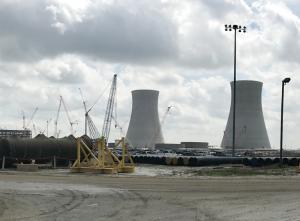Spotlight on Merchant Markets
Arun Mani is a Partner in Oliver Wyman’s utilities practice in Houston. He has over 20 years of experience advising utility clients worldwide on issues ranging from strategy to business transformation. He focuses on designing innovative business models and driving organizational change for utilities to future proof their business. Robert Ralph is a Montreal-based Oliver Wyman consultant. Robert has applied his research and analytic expertise to Oliver Wyman’s Energy and Transportation practices since joining the firm in 2016.
Nuclear generators currently provide almost twenty percent of the total output of electricity in the United States. The aging U.S. reactor fleet, however, is facing significant economic pressures, which could lead to reactors nationwide closing down earlier than anticipated.

In the past, nuclear power plants were typically expected to operate for forty to sixty years. But in light of expanding market deregulation, the increasing use of low-cost natural gas by utilities, and the likely future expansion of renewable energy sources, a third of U.S. nuclear reactors could retire by 2030.
In the past two years alone, seven reactors have announced premature closures due to financial strain and unexpected maintenance complications associated with age, suggesting that this trend is already underway.
The nuclear plants that are likely to be most at risk for early closure are those in deregulated wholesale markets, as these are not able to regulate pricing to ensure profitable operation. In these markets, smaller single-unit power plants face the highest risk of early retirement, since these plants have higher costs per megawatt-hour generated.
In many cases, nuclear power plants in merchant markets are operating close to - or in some cases below - economic breakeven.

